Vietnam is a beautiful country with a rich culture steeped in history and traditions that span centuries. Exploring the distinct cultural nuances of this diverse nation will open your eyes to an array of amazing experiences and insights that can’t be found anywhere else. From inspiring architecture to mouth-watering cuisine and awe-inspiring customs, spending time in Vietnam will undoubtedly give you an experience you’ll never forget.
But before you dive into all this unforgettable beauty, it’s important to understand certain fundamentals about Vietnamese culture, like how differently its people view family, religion, and beliefs about life itself! I have lived and worked in Vietnam for over 20 years, so here are 14 things I have learned and things for you to consider as you prepare for your journey into the vibrant world of Vietnamese culture!
Table of Contents
- 14 Discovery and Understanding Vietnam – My Personal Insider’s Cultural Travel Guide
- No One Wants To Lose Face In Vietnam
- Traffic Rules Are Suggestions In Vietnam – Don’t Get Upset
- Strangers May Pinch Or Touch You In Vietnam
- Vietnamese Can Be Blunt, Don’t Get Offended
- Trust Takes Time to Develop In Vietnam
- Education Is Important To The Vietnamese
- Elders Are Respected In Vietnam
- Families Are Very Important In Vietnamese Culture
- The Vietnam War Was “The American War.”
- Outsiders Should Never Criticize Vietnam
- Negotiating Is Generally Expected in Vietnam
- Vietnam Is A No Tipping Culture
- Vietnamese Believe In Ghosts And Spirits
- Food And Socializing Are Important In Vietnam
- Related Questions
14 Discovery and Understanding Vietnam – My Personal Insider’s Cultural Travel Guide
Vietnam is a magical country to visit or live in. The Vietnamese people are kind, generous, and inviting to foreigners. But anyone planning a visit to Vietnam should understand some things about Vietnamese culture.
Vietnam has a wonderful and gracious culture. But as with many cultures around the world, there are some cultural points that you should understand about Vietnam and the Vietnamese culture and people.
I have lived and worked in Hanoi, Vietnam, for many years; all these 14 points I have experienced or learned while living and working here.
No One Wants To Lose Face In Vietnam
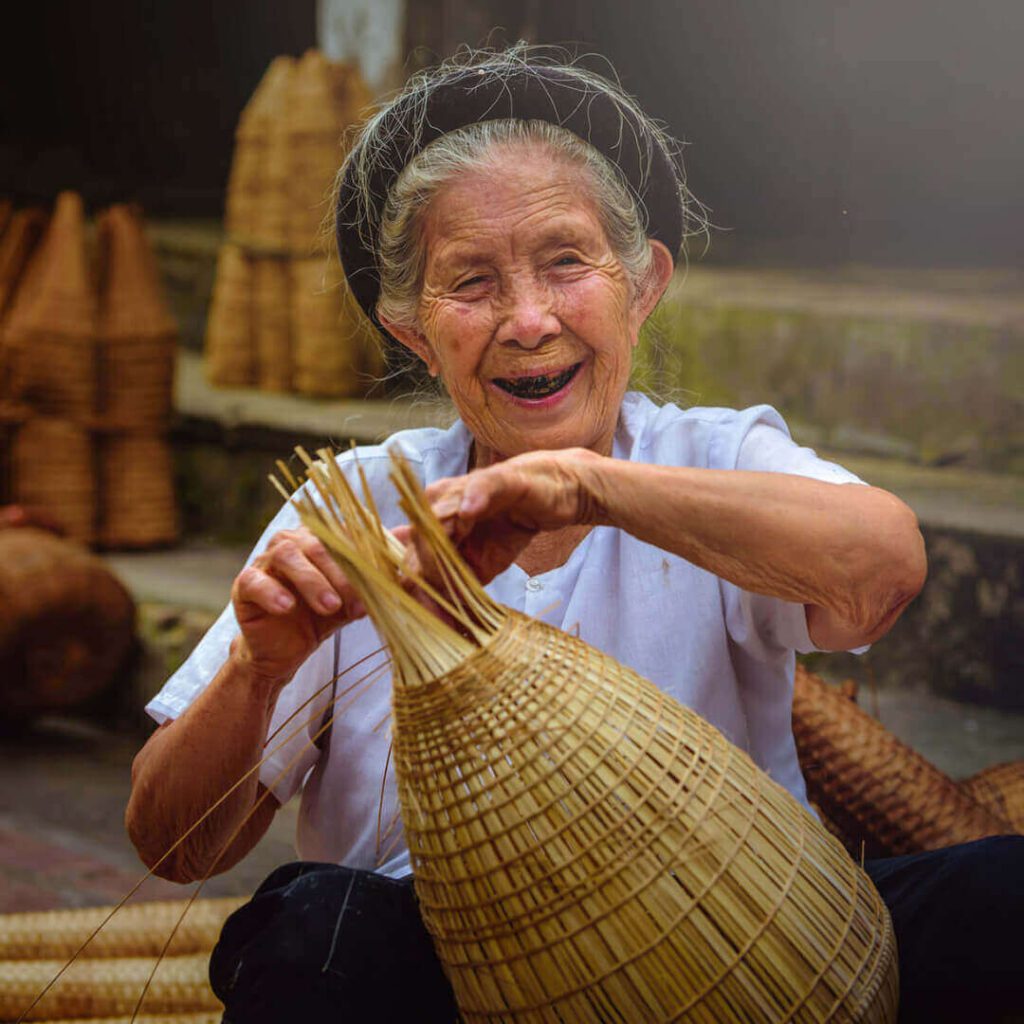
Losing face is the process of causing someone else to lose their reputation, respect, or humiliation. In Vietnam, people care deeply about their reputations, respect, and public humiliation, as do most Asians.
Losing face does not have to even people by an action; it can be by using words to cause someone to lose their respect, social standing, or reputation in part of others, especially their peers. This is all very important to the Vietnamese, and if you have an issue with someone, it is best to talk to them face-to-face and by themselves.
Traffic Rules Are Suggestions In Vietnam – Don’t Get Upset
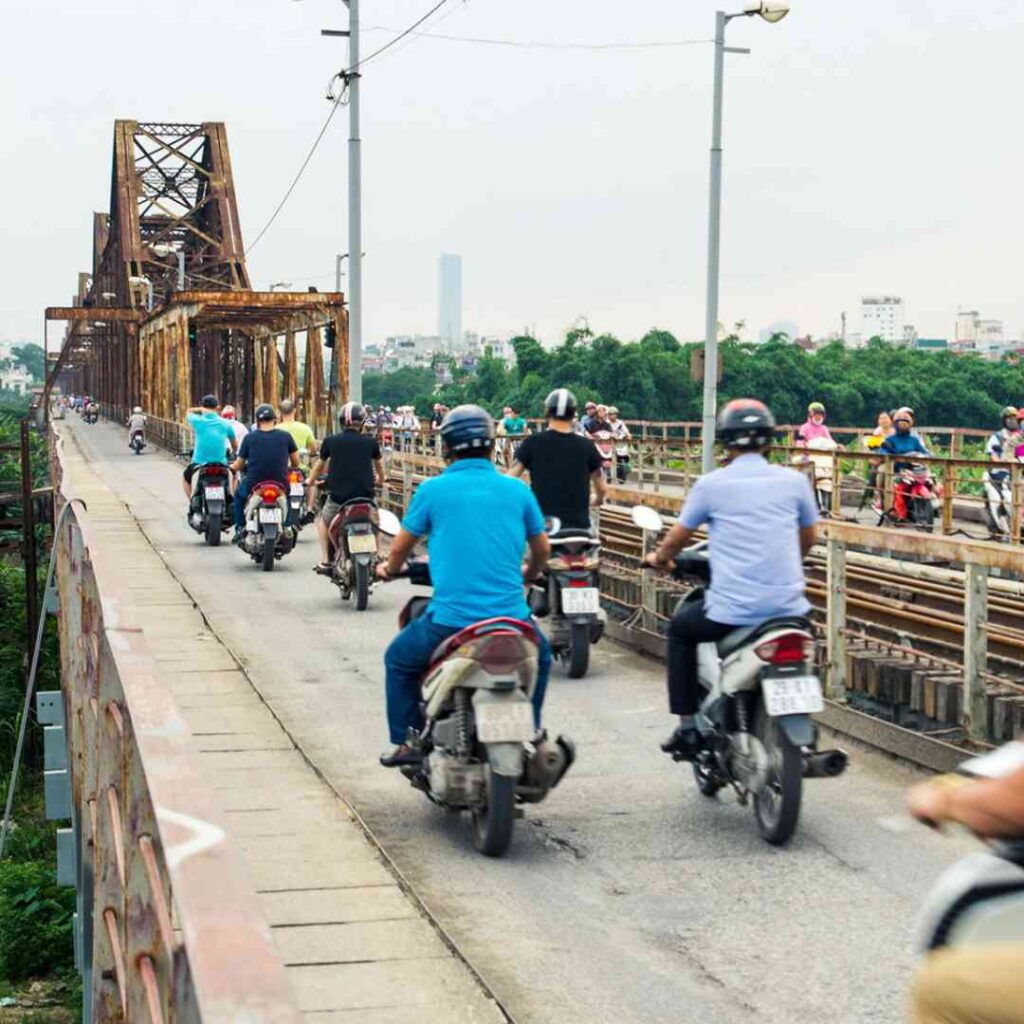
Any foreigner who visits Vietnam and rides a motorcycle or a bicycle on the streets here will understand that traffic rules can be a suggestion in Vietnam. It can be widespread for the light to be red, and the cars and motorcycle drivers will not stop at a red light; instead, they go through the light.
This can be highly frustrating to foreigners who have the proper rules of the road drilled into them when they first learn to drive. Some may even get upset as they suddenly get out of the way to miss hitting someone going the wrong way. There is little point in getting upset by this as this is just the rules of the road in Vietnam and how people drive.
There is also a lot of honking here. But if you drive on the roads in Vietnam, you learn to appreciate the honking. People are not honking at you because they are mad or upset but more to warn you that they are coming toward you or behind you. When you hear honking on the road, be thankful the person is warning you and looking out for your safety.
Strangers May Pinch Or Touch You In Vietnam
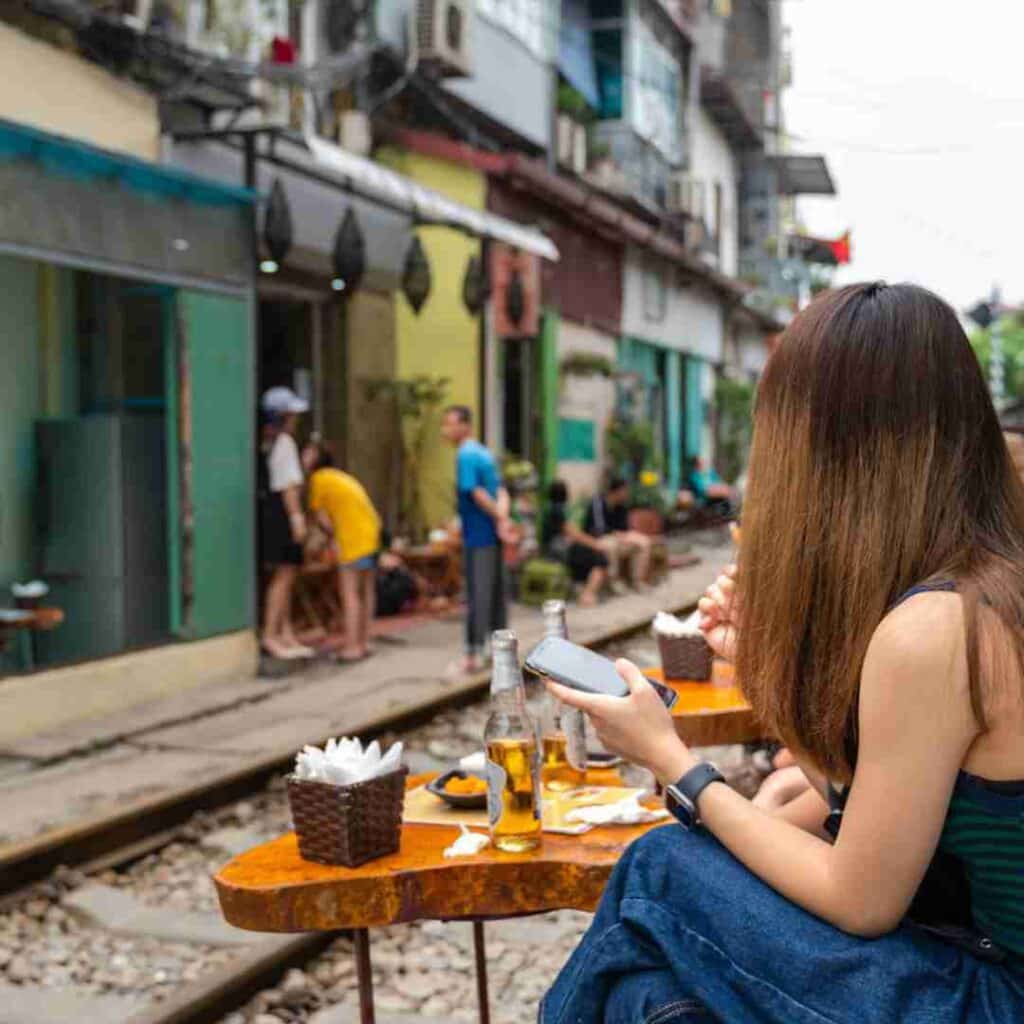
I was once at a market, and a woman came up to me and grabbed both of my breasts with her hands. In any other country, I would have cried sexual abuse. Though that was an extreme case, it is not uncommon for people to come up and touch you, your hand, or your arm.
I am not sure why this happens, but it can. It is just best to ignore this and not get too upset. I have found this to happen more in areas where they may not see a lot of foreigners.
A Vietnamese told me that when foreigners see each other many times, they will hug. Vietnamese do not hug each other; instead, they may grab you. I am unsure if pinching someone fits right into that reasoning, but be aware this may happen, and they probably do not mean offense but are curious or unsure how to greet you.
Vietnamese Can Be Blunt, Don’t Get Offended
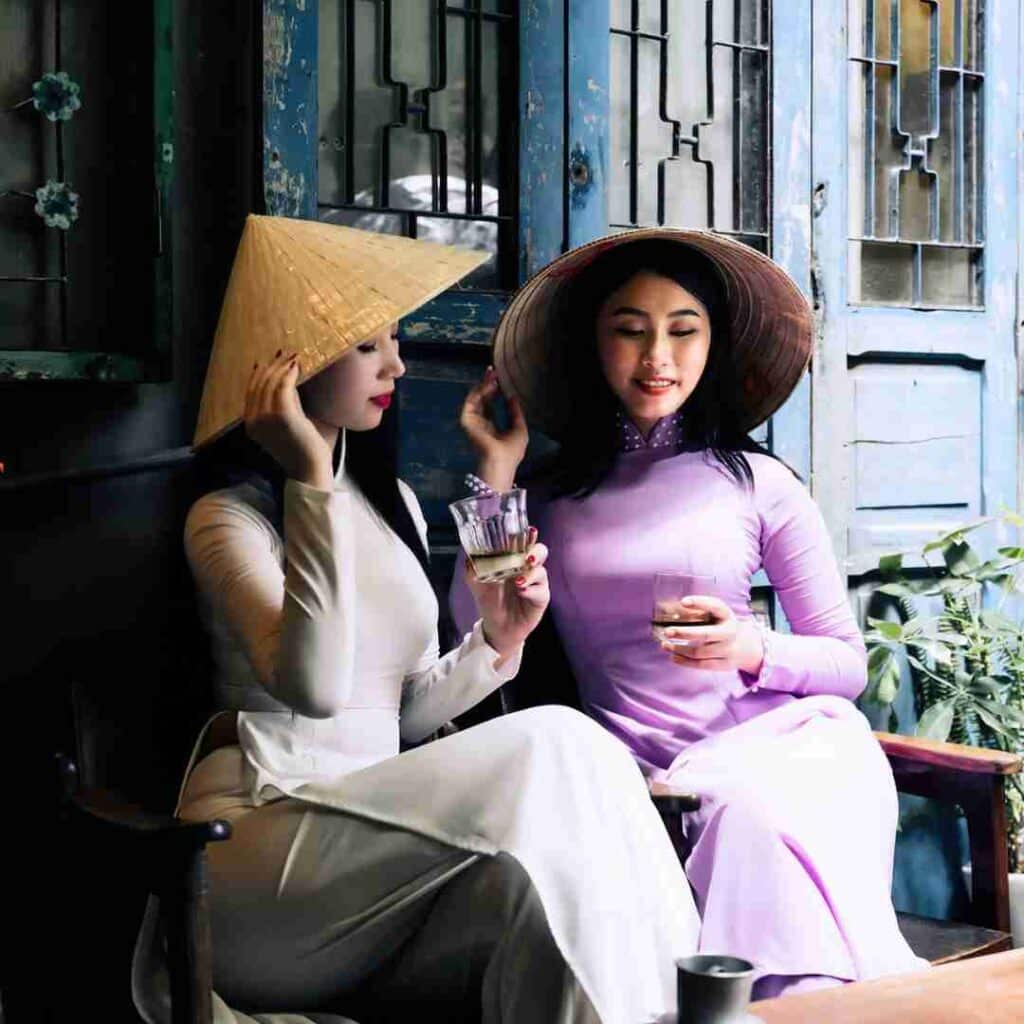
Strangers in Vietnam may come up to you and tell you that you are fat, have a big nose, or are too tall. Or, as someone was once told when they walked into a shop to buy a dress, the lady told her, “We don’t have your size; you are too big.” Talk about turning your customers away. But this can happen a lot in Vietnam.
The Vietnamese may say these things -so do not get offended – they are even blunt to other Vietnamese. They do not see this as an offense; they see it more as they speak what they see to be true.
Trust Takes Time to Develop In Vietnam
Trust in Vietnam can take time. The entire business process in Vietnam is based upon trust, but the Vietnamese are cautious, so they take their time to see if you are trustworthy.
This will also extend to legal documents. They may not put much trust in signing a legal document as they are unsure how much they can trust it. Instead, the Vietnamese will wait to see if they can trust you.
Education Is Important To The Vietnamese

Education is critical in Vietnam. This is why Vietnam has a very high literacy and education rate. Parents in Vietnam will sacrifice everything to ensure their children get a good education.
Many after-hour English language schools are all around Vietnam. Children will take extra classes in the evening, Saturday or Sunday. Many of those same schools want to hire foreign teachers.
Elders Are Respected In Vietnam
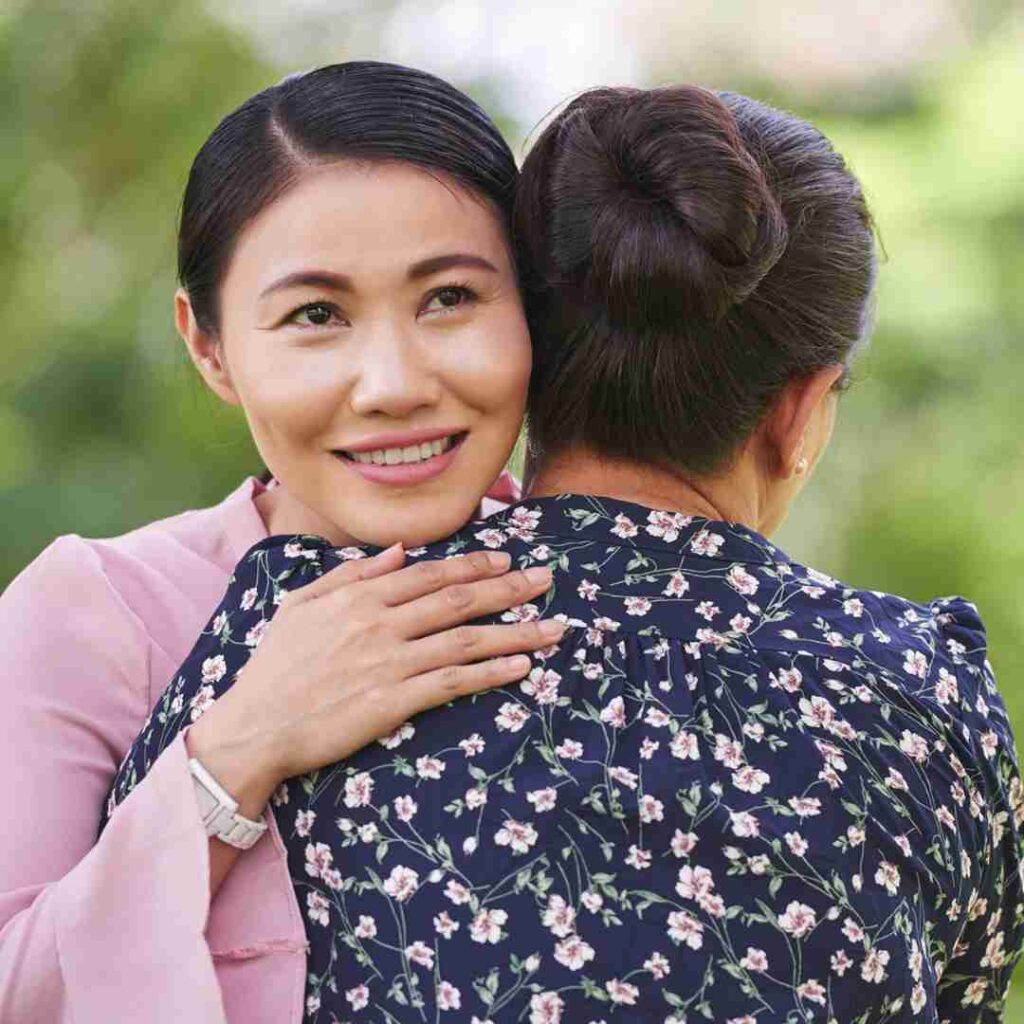
In Vietnamese, people will address you according to a title by your age. There are titles in the Vietnamese language if you are older, younger, or much older than the person you are speaking to. Age and knowing a person’s age is significant in Vietnam as it allows you to know how to address them in the Vietnamese language properly.
That is why a Vietnamese person may ask your name, and then they may then want to know your age. They are not trying to be rude, but they want to know how to address you adequately in Vietnamese.
This is very different from Westerners who may want to hide our age and almost feel insulted if someone wants to know our age or how old we are. But in Vietnam, this is considered a sign of respect.
Families Are Very Important In Vietnamese Culture
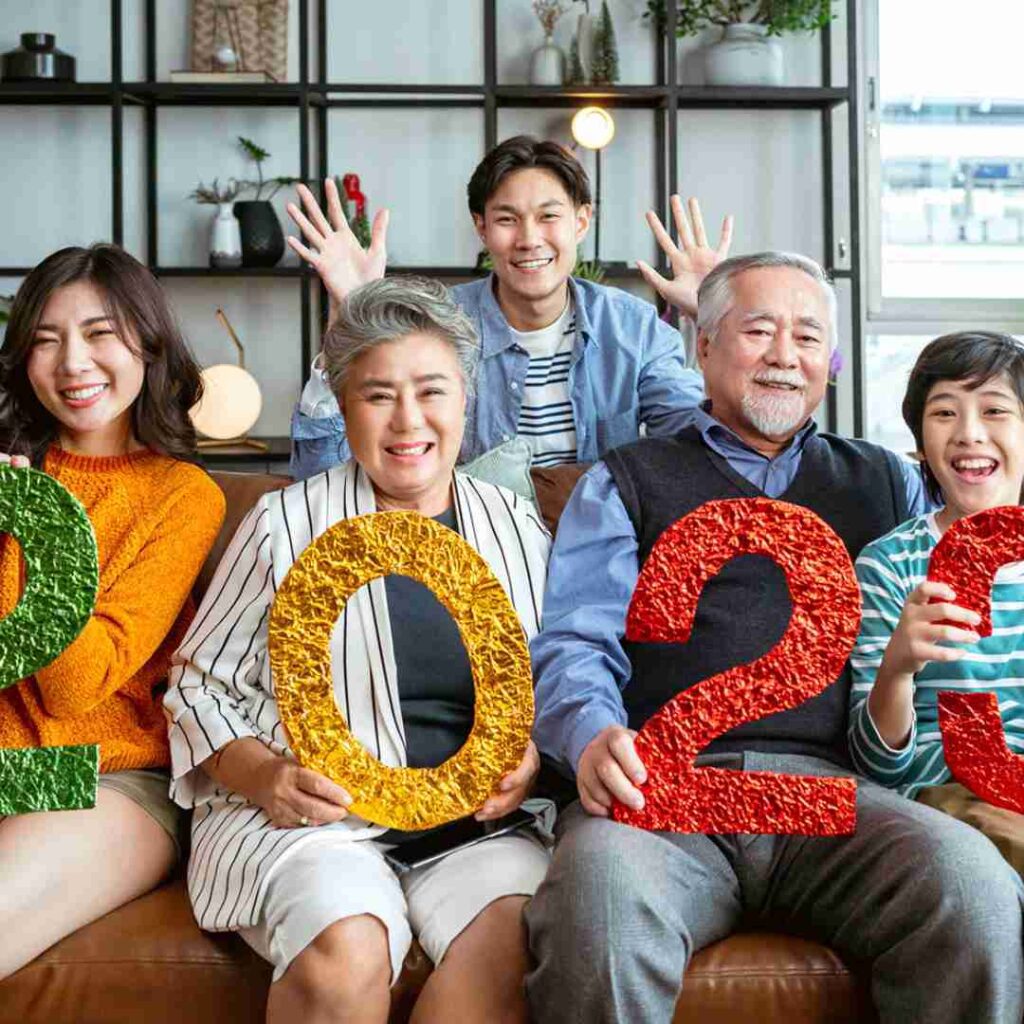
The family is at the very core of Vietnamese society. Vietnamese know their families, extended families, and ancestors. It can be common to go into a Vietnamese home and find an altar with a photo of a relative who has passed on.
Children will listen to their parents, and you may find that a child may become a doctor not because they want to but because their parents told them to. Some will even marry or not marry someone because their parents agree or disagree.
The Vietnamese may say they went to their hometown to see their family. This family does not necessarily mean that they saw their parents, but it may mean that they saw 2nd, 3rd, 4th, or even 5th cousins that they still consider family.
To discover more about Vietnamese genealogy and their families, you can read our blog, Vietnamese Genealogy, Searching for Your Family History in Vietnam, by clicking here.
The Vietnam War Was “The American War.”
In Vietnam, they call the Vietnam War the American War. This is because, for the Vietnamese population, this was the American War.
I know several Americans who have come to Vietnam, and when they heard the Vietnamese call the war the American War, they felt insulted. But for the Vietnamese, the war was about Americans invading Vietnam as they fought for their homeland and rights.
If you are a history or war buff, do not be surprised that if you try to talk about the war, the Vietnamese do not want to talk about it. The war divided many families, and so many in Vietnam will not talk about it as the memories and time were too painful.
If you have a strong opinion of the Vietnam-American War, do not speak ill of the Vietnamese war heroes. Ho Chi Minh and many other Vietnamese Generals, such as General Giap, are rightfully revered in Vietnam as they sacrificed and did a lot for the Vietnamese people.
Outsiders Should Never Criticize Vietnam
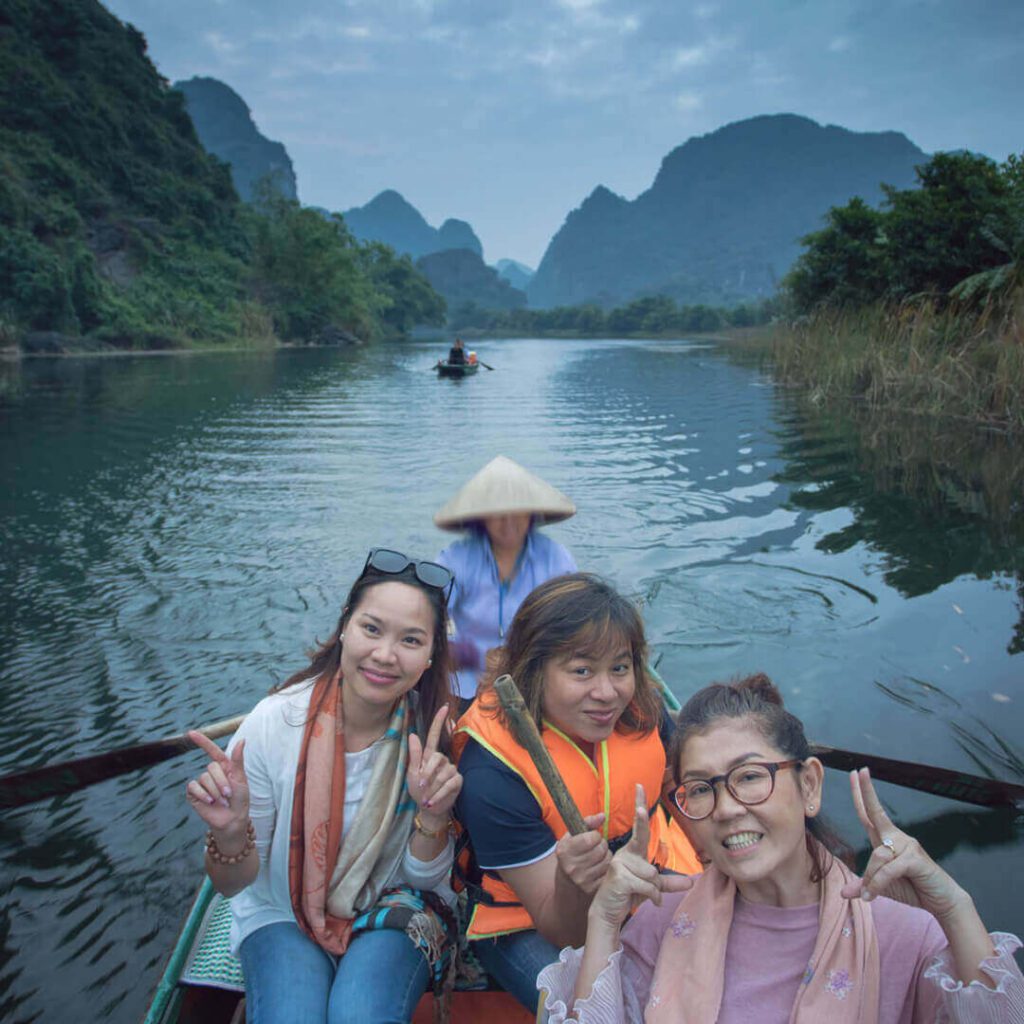
You may hear Vietnamese criticize their government or country, but it is best to avoid criticism of the Vietnamese government, past or present. Also, just common sense tells you not to criticize Vietnam in any way.
Vietnamese pride themselves in wanting to be kind, gracious, and generous visitor hosts. If you start to tell them how much you hate or dislike Vietnam, they may take offense or even take it extremely personally, like they did not do enough to make you feel welcome. It is best to leave these opinions to yourself in Vietnam.
Negotiating Is Generally Expected in Vietnam
Most people expect you to negotiate when shopping on the street or at a street market. The time when I find they do not want to negotiate is if they have listed a “fixed price.” That should tell you the fixed price and that they will not discount it.
Vietnam Is A No Tipping Culture
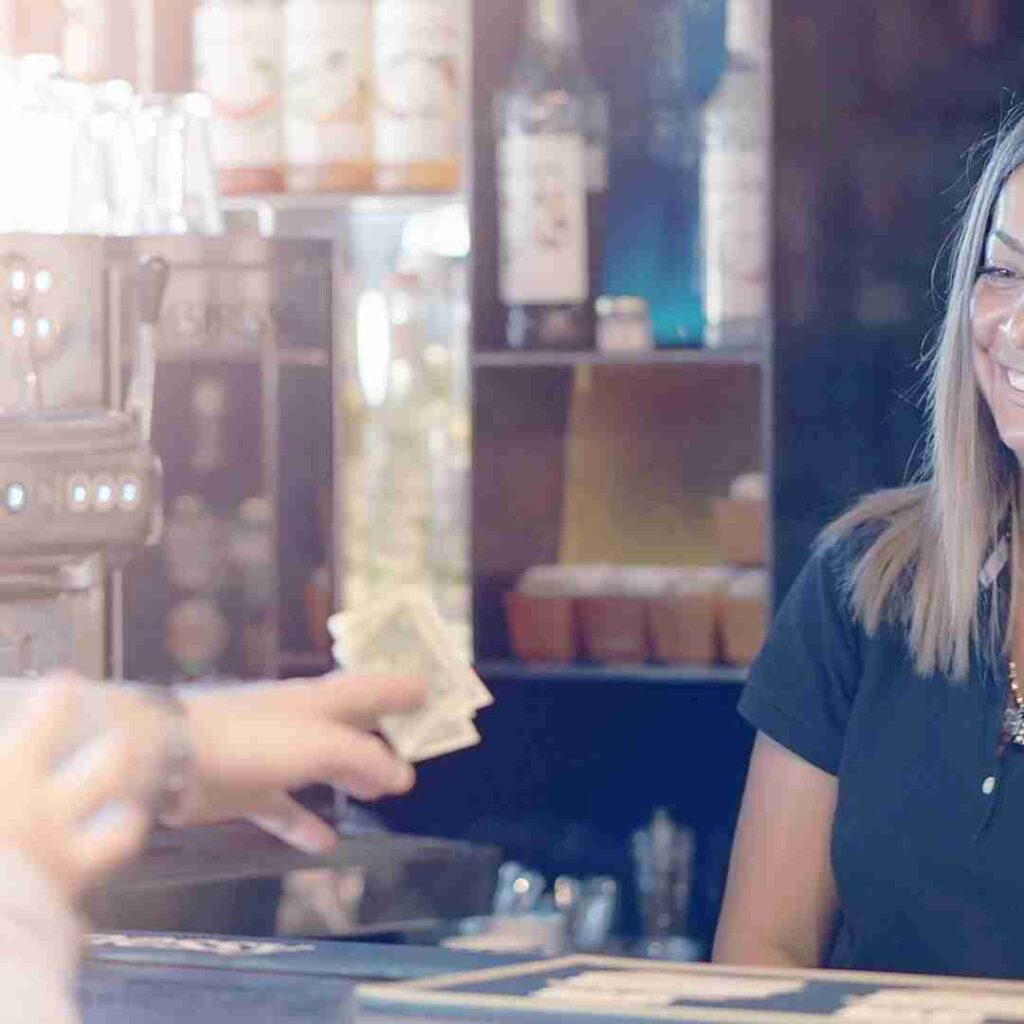
Generally, in Vietnam, you do not need to tip. At least not in the United States, where you will give 18 or 20% of the restaurant bill as a tip. Normally in Vietnam, I may leave a small amount as a tip when I eat. But a tip is not expected like in other parts of the world.
If someone was perfect or you had a huge party where they gave exceptional service, you may want to give them a bit extra in a tip. But this depends upon you.
Vietnamese Believe In Ghosts And Spirits
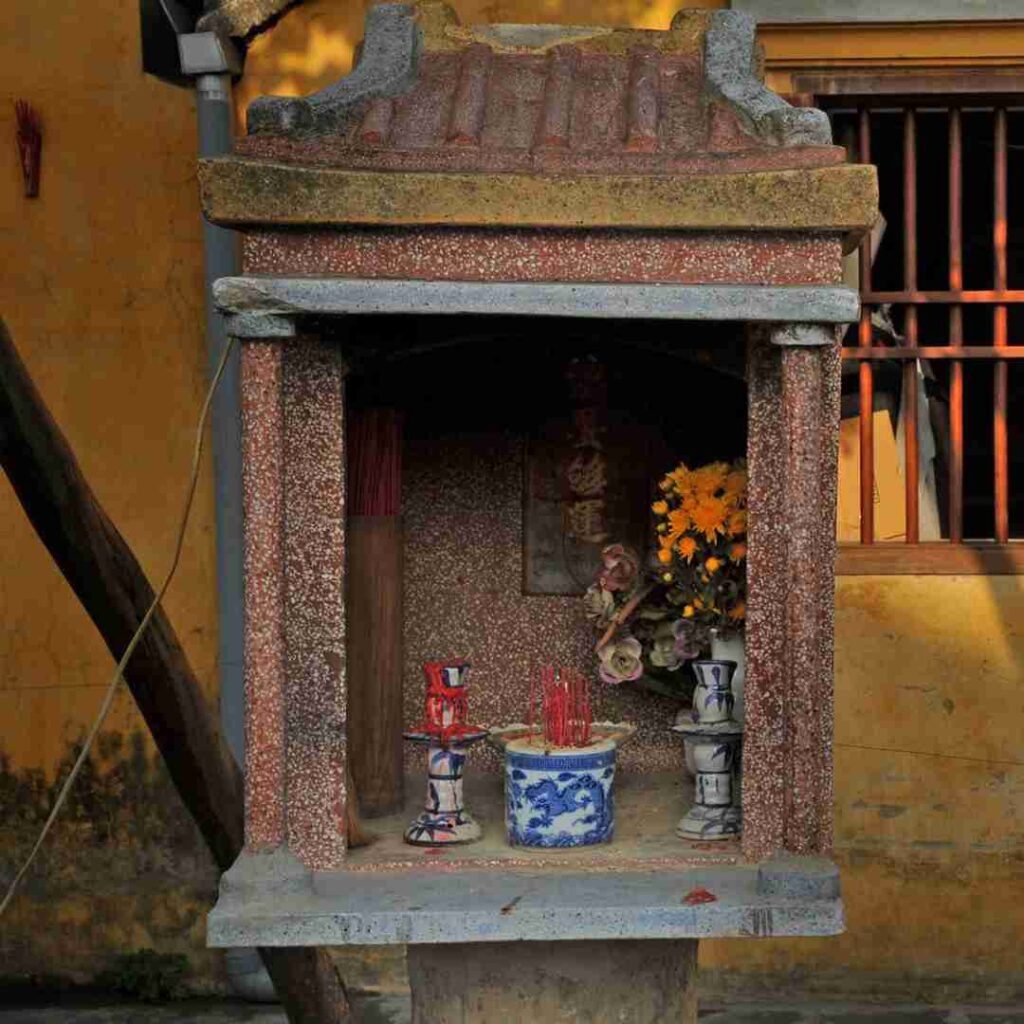
Many Vietnamese traditions and culture are based on worship and belief in their ancestors. The great fear in Vietnam is that the dead will not find peace in the afterlife and will be left to wander the earth as tortured spirits.
A lot of people in Vietnam believe in the supernatural. They may even believe the spirits or their deceased ancestors have come to speak to them. No matter what you think about ghosts talking to people or signs from a previous life, do not ever make fun of these fundamental Vietnamese beliefs or this part of their culture.
Food And Socializing Are Important In Vietnam
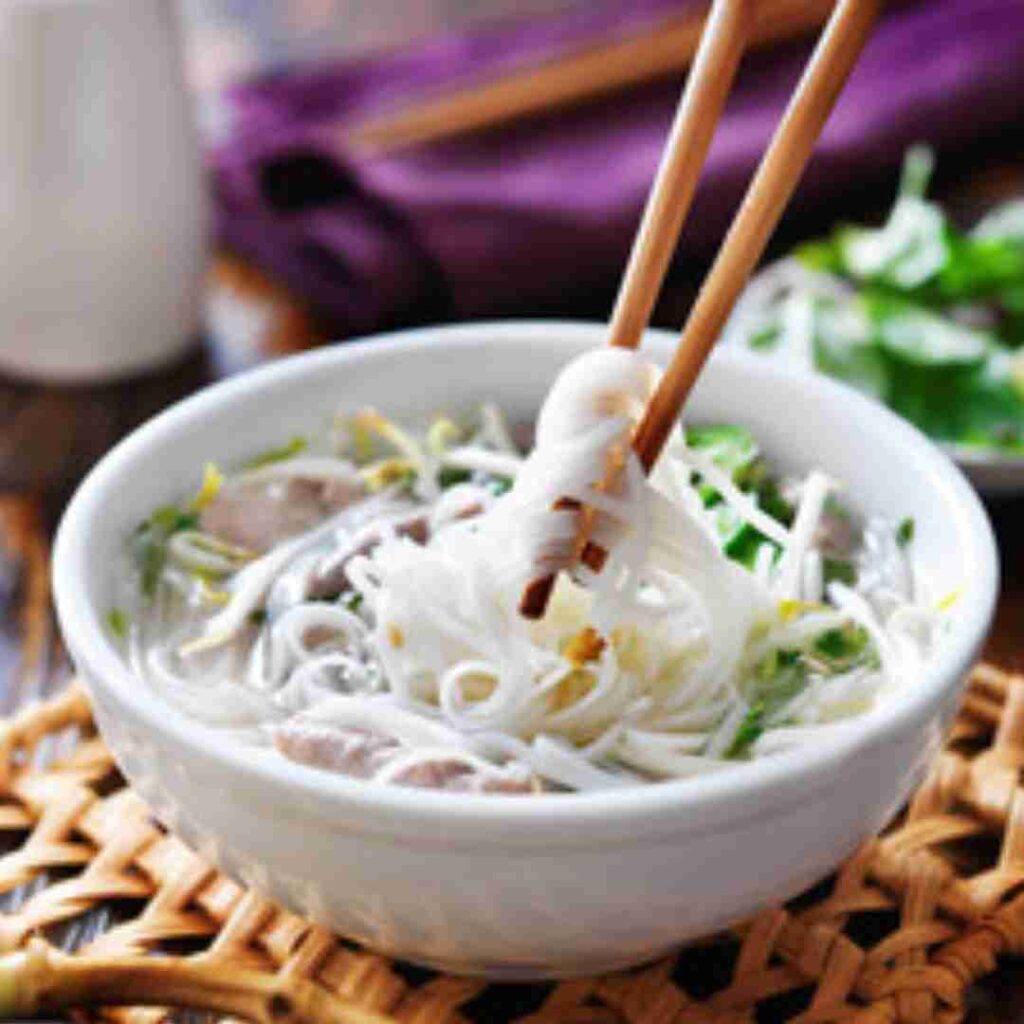
Vietnamese love to socialize, and food, drinking, and being out with their friends are essential to their culture. That is why you will see that many coffee shops and even sidewalk cafes are filled with Vietnamese socializing with their family and friends in Vietnam.
If you are lucky enough that someone invites you into their home for a meal, it is rude not to eat what they have served you. They may also sit next to you and start putting food on your plate. Eating the food is a way to show them how much you appreciate their hospitality.
Vietnam is a wonderful country with a rich and wonderful culture. When you are in Vietnam, you will find the Vietnamese to be kind, gracious, and welcoming of foreigners.
At A Bus On A Dusty Road, we talk about everything about travel, life, and ex-pat living. We are all about “Living Life As A Global Citizen.” We explore social, cultural, and economic issues and travel.
We would love to have you be part of our community. Sign up for our newsletter to keep up-to-date by clicking here. If you have any questions, you can contact me, Anita, by clicking here.
Listen to our Podcast called Dusty Roads. You can find it on all major podcast platforms. Try out listening to one of our podcasts by clicking here.
Subscribe to our A Bus On A Dusty Road YouTube Channel filled with great videos and information by clicking here.
Related Questions
Is Vietnam Really Safe To Travel Alone?
Vietnam is a very safe place to travel alone, but with any country you visit, there are a few things you should know about Vietnam and how to ensure you are safe during your travels.
To find out more, you can read our blog on Is Vietnam really safe to travel alone? What you need to know, by clicking here.
Do I Need A Visa To Travel To Vietnam?
Any foreign visitor coming to Vietnam must organize and look at your Vietnam travel visa before entering Vietnam. There are several ways to obtain a Vietnamese visa, such as at the Vietnamese Embassy, online through an agent, or a visa at the border. In some circumstances and to some nationalities, Vietnam also offers visa-free exemptions.
You can find out more by reading our blog Vietnam Travel Visa, What You Need to Know Before You Go, by clicking here.

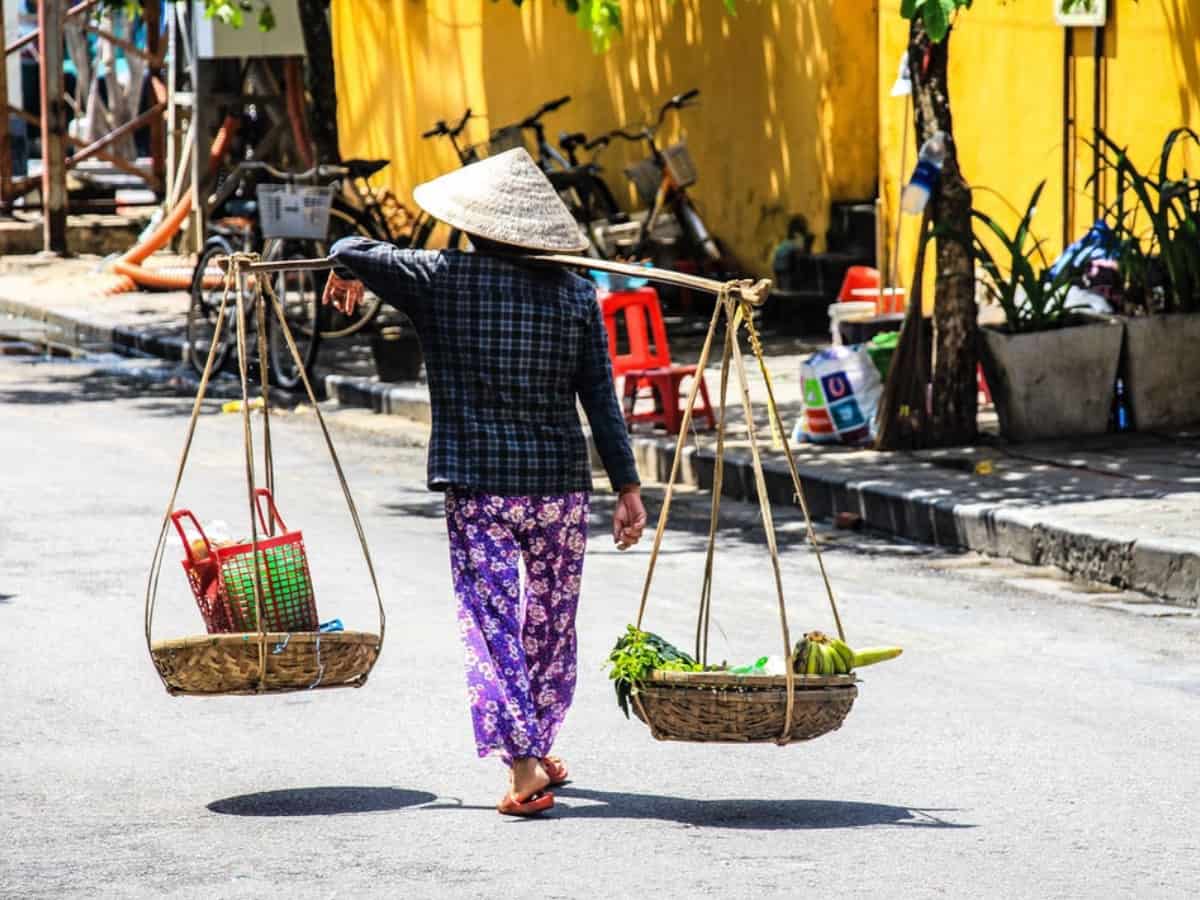

One response to “14 Things To Understand & Discover About Vietnamese Culture”
Thanks for sharing. I read many of your blog posts, cool, your blog is very good. https://accounts.binance.com/zh-CN/register?ref=W0BCQMF1